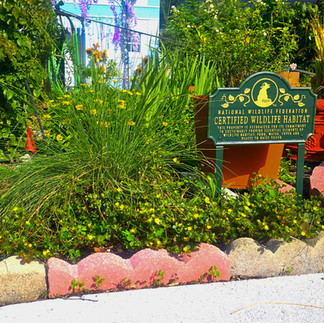Conservation Minded, Low Impact, Financially Savy: The Many Faces of Eco-Friendly Gardening
- sustainablegrounds
- Jul 25, 2025
- 2 min read
Eco-friendly gardening goes by many names—sustainable gardening, organic gardening, regenerative gardening, permaculture, and more. While these terms may sound different, they all share a common goal: working with nature, not against it. Whether you're planting a backyard vegetable patch or designing a lush pollinator garden, the principles remain the same—minimizing harm, nurturing life, and giving more than you take. Understanding that these terms often overlap can help simplify your journey into greener gardening practices.
At its core, eco-friendly gardening involves methods that preserve the environment. This means avoiding synthetic chemicals, conserving water, composting, and choosing native plants that support local ecosystems. Some may call it "organic," emphasizing chemical-free approaches. Others prefer "regenerative," focusing on soil health and biodiversity. "Permaculture" might come up when discussing systems designed to mimic natural processes. Though the vocabulary varies, the endgame is the same: a resilient, thriving landscape.
What often gets overlooked is how these practices benefit humans just as much as the planet. Growing food without pesticides leads to healthier diets. Gardening with compost and mulch improves soil, which grows more nutrient-rich produce. Creating wildlife habitats enhances our surroundings with birdsong, butterflies, and the calming presence of nature—all of which have been linked to reduced stress and improved mental health. A greener garden becomes a sanctuary not just for bees, but for people, too.
These benefits extend to communities as well. Community gardens and urban green spaces, when designed with eco-friendly principles, help cool cities, reduce pollution, and foster social connections. They become places where people share knowledge, food, and a sense of purpose. By nurturing these spaces, we create more than gardens—we build healthier, more sustainable ways of living.
So, whether you call it sustainable, organic, regenerative, or permaculture gardening, you're contributing to something bigger. Don’t get lost in the terminology. Focus instead on the shared intention: to garden in a way that supports life—yours and the planet’s. In doing so, we cultivate not just plants, but a more hopeful and harmonious future.















Comments